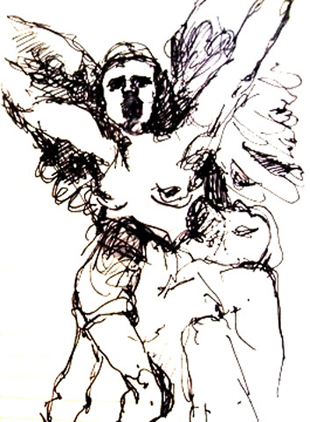CANTO ORFEÔNICO: OS IDEAIS CANTADOS DO ESTADO NOVO
Palavras-chave:
Educação Musical, Currículo, Estado Novo, Música, Villa-Lobos.Resumo
Focalizo, no presente trabalho, o projeto de educação musical conhecido como Canto Orfeônico, desenvolvido por Heitor Villa-Lobos (1887-1959), no Brasil, e adotado oficialmente no ensino público brasileiro, a partir de 1932. O objetivo proposto neste trabalho é perceber a lógica política que está subentendida em sua relação com Estado Novo. O referencial teórico baseia-se nas idéias de Ivor Goodson sobre a História das Disciplinas. Análise documental é o método utilizado para a coleta de dados nesta pesquisa. Os resultados apontam que o conteúdo nacionalista do repertório associado ao pronunciamento de Getúlio Vargas nas concentrações orfeônicas cumpria uma importante função político-educacional
Downloads
Downloads
Publicado
Como Citar
Edição
Seção
Licença
Aviso de Direito Autoral Creative Commons
Política para Periódicos de Acesso Livre
Autores que publicam nesta revista concordam com os seguintes termos:
1. Autores mantêm os direitos autorais e concedem à revista o direito de primeira publicação, com o trabalho simultaneamente licenciado sob a Licença Creative Commons Attribution que permite o compartilhamento do trabalho com reconhecimento da autoria e publicação inicial nesta revista.
2. Autores têm autorização para assumir contratos adicionais separadamente, para distribuição não-exclusiva da versão do trabalho publicada nesta revista (ex.: publicar em repositório institucional ou como capítulo de livro), com reconhecimento de autoria e publicação inicial nesta revista.
3. Autores têm permissão e são estimulados a publicar e distribuir seu trabalho online (ex.: em repositórios institucionais ou na sua página pessoal) a qualquer ponto antes ou durante o processo editorial, já que isso pode gerar alterações produtivas, bem como aumentar o impacto e a citação do trabalho publicado (Veja O Efeito do Acesso Livre).
Licença Creative Commons
Esta obra está licenciada com uma Licença Creative Commons Atribuição-NãoComercial-CompartilhaIgual 4.0 Internacional, o que permite compartilhar, copiar, distribuir, exibir, reproduzir, a totalidade ou partes desde que não tenha objetivo comercial e sejam citados os autores e a fonte.



